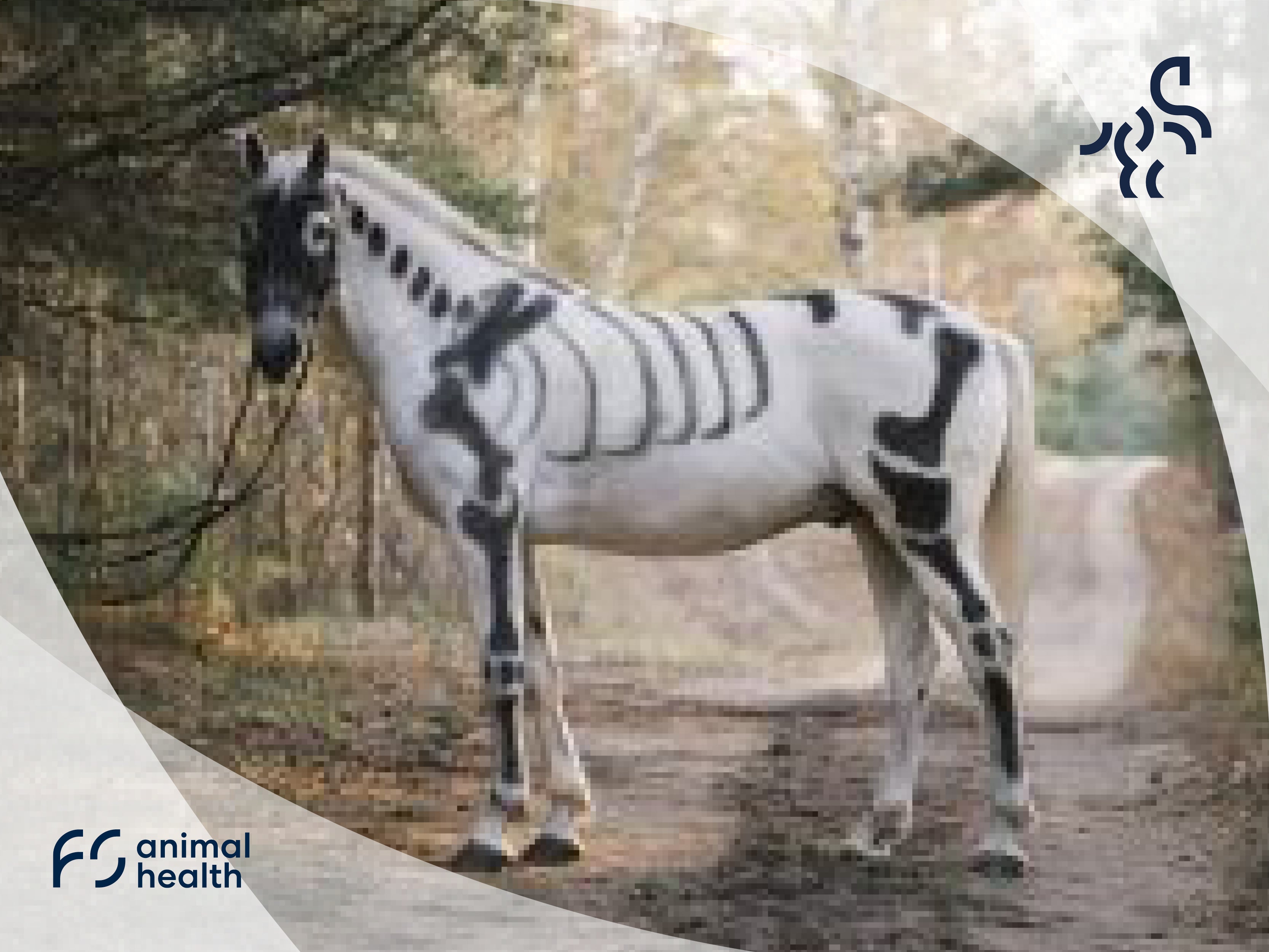Joint problems in horses are one of the most frequently discussed topics in the horse world. A number of therapies and nutritional supplements are available to treat these problems.
Choosing from the available options can be difficult for you and your horse, so here are a few helpful facts.
With 205 bones, horses have a large number of bones in their skeleton, just like humans. There are also three different types of joints. Some of these joints are very complex in their structure and movements. Examples of these highly complex joints include the carpus and the knee.
There are three types of joints in your horse:
1. Synovial joints
- most joints are so-called synovial joints
- these are mobile and most susceptible to injury
- The ends of the bones are covered with a layer of cartilage
- The cartilage layer together with the synovial fluid, the so-called “joint lubricant”, ensures smooth movement
- Example: Carpus joint, knee and elbow
2nd cartilage joints
- Depending on the bone, they are slightly mobile or immobile.
- Held together by fibrocartilage (collagen fibers), hyaline cartilage
- Example: Between the vertebrae of your horse's spine.
3. Fiber connections
- Are immobile joints
- Held together by fibrous tissue that hardens into bone.
- Example: The joints of the horse skeleton
The most important ingredients that are proven to support your horse’s health:
Glucosamine HCI
Glucosamine HCI has a soothing effect on acute joint pain. It has also been proven that glucosamine HCI slows down bone loss by increasing the hyaluronic acid content.
chondroitin sulfate
Chondroitin sulfate is a natural "water magnet" in the joints and optimally complements glucosamine HCI. The right amounts of chondroitin sulfate enable the joint to withstand constant compression and shock. "Cartilage-destroying" enzymes that occur in damaged joints are also inhibited by chondroitin sulfate.
MSM
MSM is a source of bioavailable sulfur, which is needed for the synthesis of connective tissue. MSM works best in conjunction with glucosamine and chondroitin sulfate to maintain the cartilage matrix.
hyaluronic acid
Hyaluronic acid is naturally present in your horse’s joints.
Synovitis and osteoarthritic cartilage reduce the quantity and quality of this hyaluronic acid. The most important role of hyaluronic acid is to increase the viscosity of the synovial fluid to reduce friction between the joint surfaces.
Curcumin (Turmeric)
Curcumin is the active ingredient in turmeric, which is known to have powerful antioxidant properties. It supports the digestive, muscular and immune systems. Pure curcumin is easier for your horse to absorb than the unprocessed form, turmeric. As an antioxidant, curcumin is very effective in reducing cell damage caused by oxygen radicals (ROS) and free radicals such as stress, toxins and chemicals, etc.
Finally
Basically, all horses are susceptible to joint problems, regardless of breed and size. Horses that are worked intensively are particularly susceptible. Nutritional supplements are one way to support joint health.
Below you will find a selection of dietary supplements that are relevant for maintaining joint health.
Additional support from curcumin and hyaluronic acid
KuraSyn 360x is a horse feed supplement containing highly bioavailable curcumin (active ingredient in turmeric) combined with hyaluronic acid. It contains a fast-acting curcumin extract complexed with a naturally occurring oligosaccharide and has significantly better absorption compared to untreated turmeric.
A fast-acting mobility supplement.
Stride HA is a fast-acting liquid that provides nutrients for healthy cartilage and joints. It works with the added benefit of hyaluronic acid and contains all four key components for joint health.
For optimal skeletal development and adaptation
Calphormin is unique because it contains a balanced combination of macro minerals, trace elements, amino acids and the added benefit of sodium zeolite, a bioavailable silicon-containing compound. The foundation for a horse's future success can be laid before birth.
Visit our shop at: www.fs-animal-health.com



